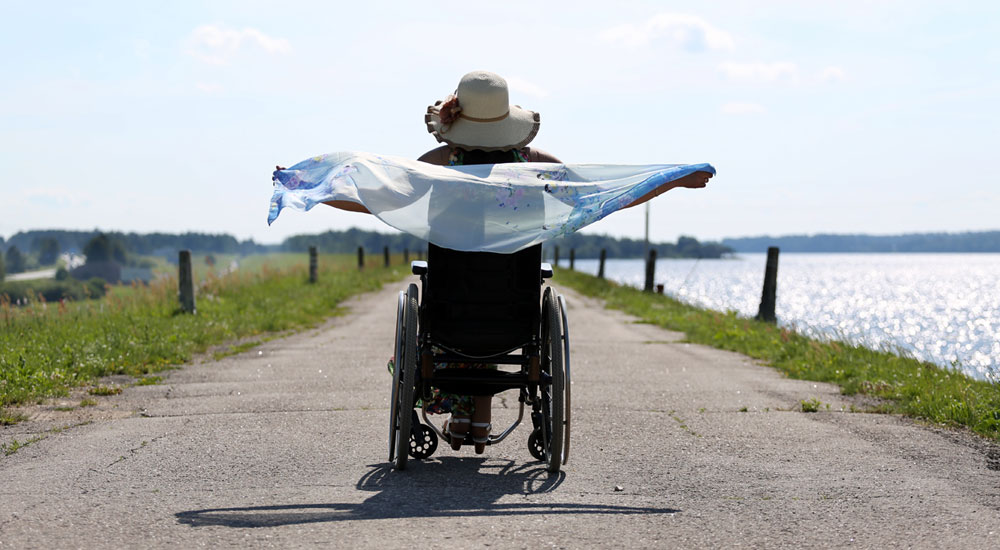We’ve all heard it before – that keeping your mind active and engaged can help prevent dementia in the later years. But what about for those who are already suffering from dementia?
A person with dementia can feel isolated and confused – even in the company of family and friends. This can cause them to develop apathy and depression which will worsen their condition and in turn, negatively impact on the people around them.
If you have loved ones who suffer from dementia, know that there are ways to keep them engaged in life and that it is possible for them to enjoy themselves as much as possible despite their condition.
What You Should Know About Dementia
According to Dementia Organisation, Australia – there are currently 487,500 Australians living with the dementia. Without a medical breakthrough, this number is expected to triple by 2058.
What’s astonishing is, dementia can affect anyone regardless of age or gender.
As of the first quarter of 2022, there are 28,800 people with younger onset dementia. Yet, this figure is expected to continue rising to 29,350 after five years, standing at more than 40,000 by 2050 and beyond.
Researchers at Griffith University in Queensland found that of those living with dementia, many do not participate in activities (structured and unstructured) such as exercise groups or music classes. These are the activities that have been proven to reverse cognitive decline.
On the same note, it is estimated that by the end of 2022, there would be almost 1.6 million individuals living in Australia involved in the care of persons with this condition.
Before you despair, here is the good news: having surveyed several said caregivers, these researchers at Griffith had came out with this – that those who took part in these activities had better outcomes than those who did not.
It therefore raises an important question: how can we keep dementia patients engaged in their daily lives?
Fun Activities To Keep Dementia Patients Engaged
At Absolute Care & Health, we’ve compiled a list of fun activities for dementia patients to keep them engaged, active, and most importantly, laughing.
These seven activities are easy enough that even someone with mild-to-moderate dementia will be able to participate—so jump right in!
Listening to Music
As dementia patients get older, their ability to communicate both verbally and non-verbally decreases. To maintain engagement with caregivers and other loved ones, dementia patients need cognitive-stimulating activities.
Music is a good source of stimulation and has been shown as an effective way to keep dementia patients engaged in conversation. Try playing an old favourite or choosing songs based on your personal experience with your loved one.
You can also use music during therapy sessions and physical exercises. Be sure to keep these pointers in mind when choosing your music:
- Loud noises can confuse dementia patients.
- Choose upbeat tunes instead of harsh, high-pitched sounds like alarms or sirens.
- Avoid songs with lyrics if you aren’t familiar with them.
- If you’re worried about remembering the lyrics, try downloading music into your phone and play it through headphones so only you can hear it.
This way, you won’t have to worry about getting confused over words or even trying to sing along. Just put on some music and enjoy dancing with your loved one, who knows, you might just find yourself enjoying some quality time together!
Puzzles
Puzzles have been shown to increase memory retention by exercising areas of your brain that have otherwise declined due to memory loss associated with dementia.
Give dementia patients some great brain stimulation with an engaging puzzle such as crosswords, jigsaw or word search.
Even something as simple as placing a photograph in front of them and asking them what they remember about it can help stimulate memories—it’s important not to assume you know everything about their life!
Puzzles are enjoyable while also helping patients avoid anxiety, depression and fatigue. The next time you’re looking for fun activities for dementia patients, reach for one of these puzzles.
You can find a fun one online or at your local department store. Tip: if it features photos of familiar faces and things (like family members), it will be even more engaging!
Acting Out Movies
Why not have them act out movies with you.
You may have your techniques and preferences, but I’ve seen people have fun with their loved ones by acting out movies.
Whether it’s an actual movie or a classic like Charlie and The Chocolate Factory, it doesn’t matter if you remember enough.
Just make sure that everyone has a role in keeping things fair. For example, if you’re playing out Star Wars, there needs to be someone playing Darth Vader!
If they do not understand what they are supposed to do, just ask them what they think is happening in their version of the story.
It might be entertaining!
Creating Artwork
You can have your loved one create artwork on a canvas or paper. Provide them with various materials such as paintbrushes, paints and canvases, and start painting away.
It is an excellent opportunity for you and your loved one to spend quality time together. You will have fun watching them complete their masterpiece while they work on improving their motor skills.
If they are not at an age where they need physical assistance in drawing or painting, let them be creative and use all of their artistic talents.
For those who do require some help, it is still a great way to keep them engaged and involved. They may not remember what they created but it doesn’t matter – because you will always have something beautiful to look at.
Role-Playing
One of my favourite activities is an excellent old-fashioned role play.
There are many different ways you can use role-plays in your sessions, but one of my favourites involves simply having a conversation.
While some people may think that a simple conversation doesn’t sound like fun, dementia patients will get into it!
It’s also an easy activity to have at home with a loved one who has dementia. The next time you see your loved one, ask them what they want to talk about today.
You might be surprised by just how much they remember and become engaged! And if they do not know anything from their past, just make something up together.
They won’t know any better!
Another great idea is to write down questions on slips of paper and then put them in a hat.
Ask your loved one to pick out questions from the hat, answer them, and then continue on another question.
Sorting Materials Into Groups
Sorting is an easy activity that anyone can do, and it helps dementia patients by challenging their minds while also keeping them engaged.
The key here is to keep things interesting; don’t just throw many items in a box and call it a day.
Figure out how you can make your sorting activities more stimulating, challenging and fun for everyone involved.
For example, use unique containers (such as shoeboxes or small baskets) or try using different materials (such as other coloured paper clips).
Keep it simple, and remember that repetition is key!
Just because your loved one with dementia cannot recall what they did last week doesn’t mean they won’t enjoy doing it again today.
Try taking photos of previous sorting activities so that when you reintroduce them, they will feel familiar.
Most importantly, keep your loved one engaged—the more time spent thinking about something other than their disease is time well spent!
Cooking and Baking
Cooking is a great way to keep dementia patients engaged as it provides a stimulating environment.
For example, do you know how to bake? If not, ask your parents and grandparents about their favourite recipes from childhood.
Pull them out and try baking some of them with them! The kitchen is a fantastic way to spend time with loved ones and keep their minds active—plus, you’ll have something delicious at the end of it all!
Don’t worry if you think your grandma or grandpa will not remember; they might be surprised by how much they can recall when they feel comfortable in an engaging environment.
Conclusion
Dementia is a terrible disease that slowly diminishes mental and physical faculties.
Although you can’t do much about its genetic roots, it doesn’t mean that you can’t find creative ways to keep your loved one engaged. So if your loved one has dementia, consider these fun activities mentioned above and try them out. Who knows, it might just work – seeing them come alive in front of you once again will be the greatest pride and joy, we’re sure!



